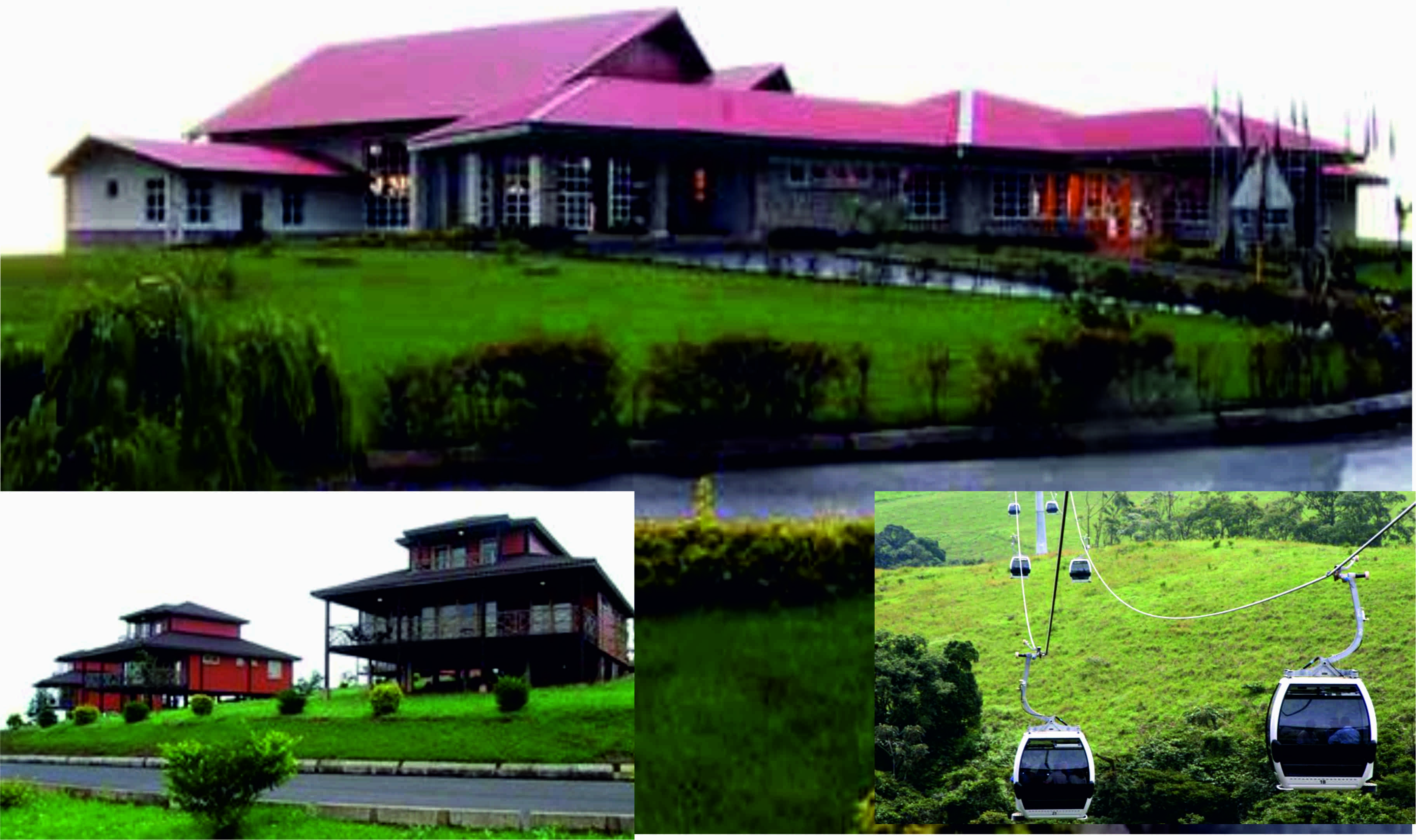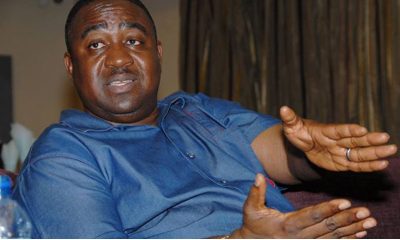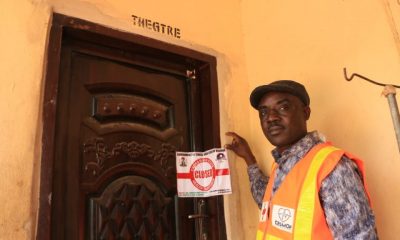Featured
Bekeleke: The seamy side of sunny Obudu Mountain Resorts
Published
10 years agoon
By
Olu Emmanuel
On the lee side of a tourist haven lies a community steeped in acute poverty and neglect. Its people are beginning to feel cheated
BY PETER NYALI
BY November this year, tourists and sports buffs all over the world will besiege Calabar. From there they will wind their ways up the Obudu Mountain Resorts where the world’s richest mountain race will tee-off. And as the fanfare builds up, one of the host communities, Bekeleke, will be doing one of four things: burying their dead, trying to piggyback a sick woman or child to Obudu for emergency treatment. And one more thing: they might be boiling with anger.
Of course they already are. “We are angry because during election they will find their way here, deceive us to get our votes: but after the election they will all forget us,” an elder at Bekeleke told the National Daily reporter.
There are several communities, apart from Bekeleke, that skirt the mountain resorts, including Kejukwu, Ukwamu, Okpayanga, Abayiule, Anape, Kigol and Keyi. Each has their pains. But Bekeleke’s is spectacular. It tells a story of how rank poverty exists alongside affluence in Nigeria. From Calabar, Cross River capital and the best place to live in Nigeria, it takes you 10 hours by foot to get to this earth-bound community in the Obanliku Local Government Area. That’s by the reporters guesstimate. Okwunde, 21, who, by chance became this reporter’s guide, said it takes about two days to walk the distance from Bekeleke to the resort where there is a flea market and a health center.
More than anything else, that distance signifies the community’s exclusion from development. Bekeleke has no school, functioning health centre, telecommunication, electricity, potable water, and transport system. The villagers have no roofsexcept thatcheson their heads.
They also have a cemetery. “That’s where we bury our people who cannot withstand this neglect any longer,” Bekeleke’s traditional ruler, Ogweshi Ngweli, told the reporter.
Even those alive in the village are merely surviving. It is a life they are used tofor over 400 years. Okwunde, a little jovial now, said the 10-hour-long trek isn’t as exhausting as many journalists and development workers visiting the place think. “It’s like a 30-minute dash.” That dash took the reporter days of preparation and gearing (a torch, a backpack, a mat, and a flagon).Of course, you have to travel light on that sort of expedition. But the villagers hardly carry anything. They slog it either carrying their wild honey (their only produce for commerce) or helping some sick neighboursorhaving a pressing need to interact with the outside world.
In company of Okwunde and two girls, the reporter arrived Oshenogba, the first community at Bekeleke around 9pm.It was an eerie silence that enveloped the hamlet, disrupted at intervals by a chorus of stridulating crickets. At that time, the thought of a safe place to spend the night was all that mattered to the reporter. Okwunde, however, offered to take him in.
In the following morning, the guide took him to Ogweshi’s palace. On the way, the reporter was able to take in what Bekeleke is like: scanty huts crowded with farmers and their free ranging goats and sheep.“I don’t know the exact population of this community because as our women give birth regularly so they and their children die,” the traditional ruler said.
ALSO SEE: Escape from desert snakes: A Ghanaian struggle to reach London (Part 1)
He barely understands English language. But a youth, Francis Achue, who is a palace orderly, came in to help.
What was there to be said and translated was already staring the reporter in the face. “My people are dying everyday because we don’t have good healthcare centres here. We don’t have good roads to carry sick people to ranch which the government is using to make money but have neglected us.”the chief ranted on.
Achue said they had two health centres but without facilities and manpower. “There are only two staffers who live in the ranch. Health workers don’t accept posting to the interior village,” he said. “In emergencies, we have devised a means of conveying people on a stretcher made from woven palm fronds, and hurled along by ropes (handles) to the ranch for attention.”
According to Achue, the chances of survival are 20percent because at times they die on the way. “In fact, eight in every 10 die on their way.” Even if they make it to the ranch, death has yet to pass over them. The ranch hospitals are well equipped, to be sure. “The unlucky patients still die because we don’t have the money to pay for the treatment.”
This wasn’t the first time the outside world would hear this chilling story from Bekeleke.
“About two years now, some big people like you came to talk to us,” the chief narrated, almost in tears. “We begged them to help us beg government to come to our aid. But till today, nothing has happened. Please, tell the world how wicked the Nigerian government has been to us.”
ALSO SEE: Escape from desert snakes: A Ghanaian struggle to reach London (Part 2)
The death toll seems the most worrisome of their problems. “We need help. Our people are dying every day like chickens,” said Mrs. Ojia, 55. Achagba Augustine, 47, who is in charge of one of the Bekeleke’s two empty health centres, highlighted the level of injustice done to the community. “Bekeleke gave out the ranch to the government,” he said.“That is the reason the villagers keep off the ranch, allowing it to be managed by the government. But you can see how much we have lagged behind.”
According to him, the two health facilities are not well-equipped to carry out our health services the way we should. “We would be very happy if the government would intervene especially in area of road construction and the employment of staff,” he added.
The problem now is that Bekeleke hasn’t been specific about the government it’s appealing to: the federal, state, or local. The closest to them, however, is the Obalinku LGA. But the state government, during the administration of Gov. Donald Duke, implemented the Obudu Ranch Development Plan put together by McCaughley Hugh Jones and Dr Crawfield in 1951. Not clear yet whether the master plan provided for the host communities.
Even the current manager of the resorts, African Sun Limited, has not deemed it proper to extend its corporate social responsibility to Bekeleke and others who, apparently, are angry their natural resources are taken without compensation. And nothing prevents these host communities from becoming hostile soon if their grievances are not heeded.
You may like
Trending

 Latest1 week ago
Latest1 week agoYoruba film industry mourns as popular actress aunty Ajara passes away

 Business1 week ago
Business1 week agoAre CBN policies crippling banks, private businesses in Nigeria?

 Latest1 week ago
Latest1 week agoSenate again defers decision on Electoral Act amendment after closed session

 Latest1 week ago
Latest1 week agoADC condemns Senate’s rejection of mandatory electronic transmission of election results

 Football1 week ago
Football1 week agoGuardiola raises fitness concerns over Bernardo Silva ahead of Liverpool showdown

 Latest1 week ago
Latest1 week agoSuswam quits PDP, cites prolonged internal crisis

 Business7 days ago
Business7 days agoNNPC explores Chinese partnership to revive Nigeria’s state-owned refineries

 Health6 days ago
Health6 days agoRacketeering allegations trail claims of vaccine profit cycle






